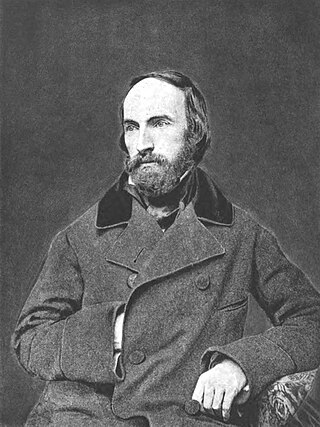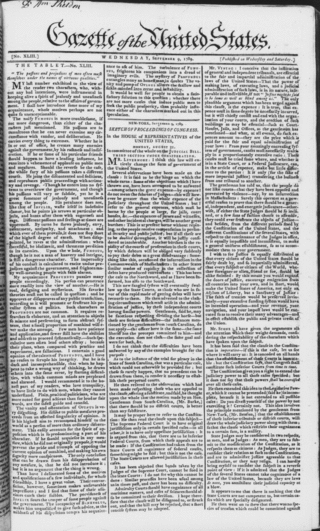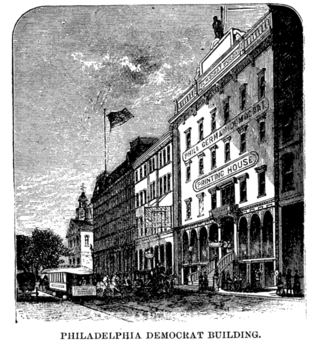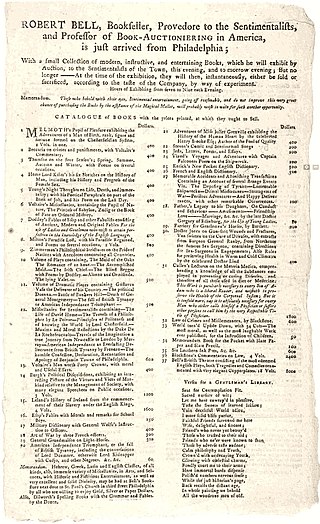Related Research Articles

Fairmount Park is the largest municipal park in Philadelphia and the historic name for a group of parks located throughout the city. Fairmount Park consists of two park sections named East Park and West Park, divided by the Schuylkill River, with the two sections together totalling 2,052 acres (830 ha). Management of Fairmount Park and the entire citywide park system is overseen by Philadelphia Parks & Recreation, a city department created in 2010 from the merger of the Fairmount Park Commission and the Department of Recreation.

The Pittsburgh Post-Gazette, also known simply as the PG, is the largest newspaper serving metropolitan Pittsburgh in the U.S. state of Pennsylvania. Descended from the Pittsburgh Gazette, established in 1786 as the first newspaper published west of the Allegheny Mountains, the paper formed under its present title in 1927 from the consolidation of the Pittsburgh Gazette Times and The Pittsburgh Post.

The history of American newspapers begins in the early 18th century with the publication of the first colonial newspapers. American newspapers began as modest affairs—a sideline for printers. They became a political force in the campaign for American independence. Following independence the first amendment to U.S. Constitution guaranteed freedom of the press. The Postal Service Act of 1792 provided substantial subsidies: Newspapers were delivered up to 100 miles for a penny and beyond for 1.5 cents, when first class postage ranged from six cents to a quarter.

William Henry Fry was an American composer, music critic, and journalist. Fry was the first known person born in the United States to write for a large symphony orchestra, and the first to compose a publicly performed opera. He was also the first music critic for a major American newspaper, and he was the first known person to insist that his fellow countrymen support American-made music.
The Herald was a morning – and later – evening broadsheet newspaper published in Melbourne, Australia, from 3 January 1840 to 5 October 1990. It later merged with its sister morning newspaper The Sun News-Pictorial to form the Herald-Sun.

The Gazette of the United States was an early American newspaper, first issued semiweekly in New York on April 15, 1789, but moving the next year to Philadelphia when the nation's capital moved there the next year. It was friendly to the Federalist Party. Its founder, John Fenno, intended it to unify the country under its new government. As the leading Federalist newspaper of its time, it praised the Washington and Adams administrations and their policies. Its Federalist sponsors, chiefly Alexander Hamilton, granted it substantial funding; because some of it was directly from the government, the Gazette is considered to have been semi-official. The influence of the newspaper inspired the creation of the National Gazette and the Philadelphia Aurora, rival newspapers for the Democratic-Republicans.

Union Fire Company, sometimes called Franklin's Bucket Brigade, was a volunteer fire department formed in Philadelphia in 1736 with the assistance of Benjamin Franklin. It was the very first firefighting organization in Philadelphia, although it was followed within the year by establishment of the Fellowship Fire Company. The fire company was formed on 7 December 1736 after a series of publications in the Pennsylvania Gazette by Franklin and others pointing out the need for more effective handling of fires in Philadelphia and remained active until approximately 1820. Although modeled after the Mutual Fire Societies of Franklin's native Boston, the Union Fire Company protected all members of the community rather than only the members of the company.

Sedgeley was a mansion, designed by the architect Benjamin Henry Latrobe, and built on the east banks of the Schuylkill River in Philadelphia, USA, in 1799–1802.
Rees Hill was a U.S. army colonel in the War of 1812 and a politician who served as a Republican and Democratic-Republican member of the Pennsylvania House of Representatives for Greene County from 1810 to 1813 and from 1814 to 1820, including as Speaker of the Pennsylvania House of Representatives in 1816 and 1819. He also served as a Democratic member of the Pennsylvania State Senate for the 18th district from 1821 to 1822 and the 20th district from 1823 to 1824.
Jacob Holgate was a businessman, member of the Pennsylvania House of Representatives, and served as speaker of the House in 1815.

The Philadelphia Demokrat was a German-language morning paper in Philadelphia, Pennsylvania affiliated with the Democratic Party published from 1838 to 1918.
The Knoxville Register was an American newspaper published primarily in Knoxville, Tennessee, during the 19th century. Founded in 1816, the paper was East Tennessee's dominant newspaper until 1863, when its pro-secession editor, Jacob Austin Sperry (1823–1896), was forced to flee advancing Union forces at the height of the Civil War. Sperry continued to sporadically publish the Register in Atlanta, and later Bristol, until he was finally captured by Union forces in December 1864.

The Mercantile Library Company of Philadelphia was established in 1821. Staff included John Edmands.

The Philadelphia Evening Telegraph was a newspaper published in Philadelphia, Pennsylvania, from 1864 to 1918.

The Pennsylvania Packet and the General Advertiser was an American newspaper that was founded in 1771. In 1784, it became the first successful daily newspaper published in the United States.

The North American was an American newspaper published in Philadelphia, Pennsylvania. It was founded in 1839, though it could claim a lineage back to 1771, and published until 1925, when it was purchased by the owner of the rival Public Ledger.

William Parks was an 18th-century printer and journalist in England and Colonial America. He was the first printer in Maryland authorized as the official printer for the colonial government. He published the first newspaper in the Southern American colonies, the Maryland Gazette. He later became authorized as the official printer for the colonial government of Virginia. Parks was also the publisher and printer of the first official collection of the authentic 1733 set of Virginia's laws, and the first colonial publisher and proprietor of The Virginia Gazette newspaper. During his lifetime Parks established four new newspapers in the colonies. He also worked with Benjamin Franklin on several projects related to printing, most notably, the establishment of a paper mill in Virginia, the first such mill south of Pennsylvania.
Friends meeting houses are places of worship for the Religious Society of Friends, or Quakers. A "meeting" is the equivalent of a church congregation, and a "meeting house" is the equivalent of a church building.

Public drinking fountains in Philadelphia, Pennsylvania, United States, have been built and used since the 19th century. Various reform-minded organizations in the city supported public drinking fountains as street furniture for different but overlapping reasons. One was the general promotion of public health, in an era of poor water and typhoid fever. Leaders of the temperance movement such as the Woman's Christian Temperance Union saw free, clean water as a crucial alternative to beer. Emerging animal welfare organizations, notably the Society for the Prevention of Cruelty to Animals, wanted to provide water to the dogs and working horses of the city on humanitarian grounds, which is why Philadelphia's drinking fountains of the era often include curb-level troughs that animals could reach.

Robert Bell (1732–1784) was a Scottish immigrant to the British colonies in America and became one of many early American printers and publishers active during the years leading up to and through the American Revolution. Bell became widely noted for printing Thomas Paine's celebrated work, Common Sense, a highly influential work during the revolution that openly criticized the British Parliament and their management and taxation of the British-American colonies. Bell and Paine later had a falling out over profits and publication issues. As a dedicated patriot, Bell printed many pamphlets and books before and during the revolution, many of which "glowingly" expressed his patriotic views. He also reprinted a number of popular English works, presenting them to the colonies for the first time. He ran an auction house which sold rare books in Lancaster, and in later life he toured the colonies selling off his massive book collection. After Bell's death, his printing press and other items were sold at a Philadelphia auction house to another prominent printer at an unusually high price.
References
- ↑ "About this Newspaper: The national gazette and literary register". Chronicling America: Historic American Newspapers. The Library of Congress. Retrieved 2010-05-30.
Title: The national gazette and literary register. : (Philadelphia [Pa.]) 1820-1841
- ↑ Scharf & Westcott 1884, p. 1987.
Bibliography
 This article incorporates text from this source, which is in the public domain :Scharf, John Thomas; Westcott, Thompson (1884). History of Philadelphia, 1609-1884 (Public domain ed.). L. H. Everts & Company. p. 1987.
This article incorporates text from this source, which is in the public domain :Scharf, John Thomas; Westcott, Thompson (1884). History of Philadelphia, 1609-1884 (Public domain ed.). L. H. Everts & Company. p. 1987.